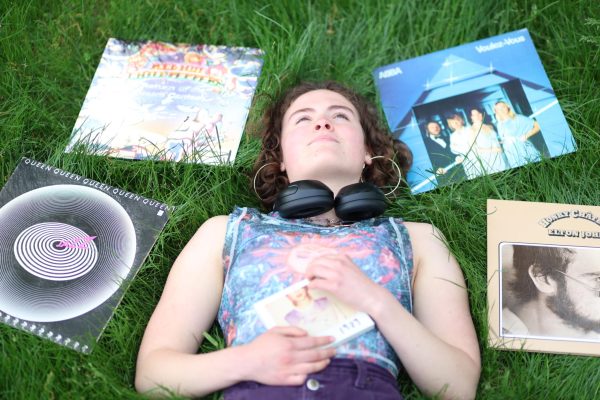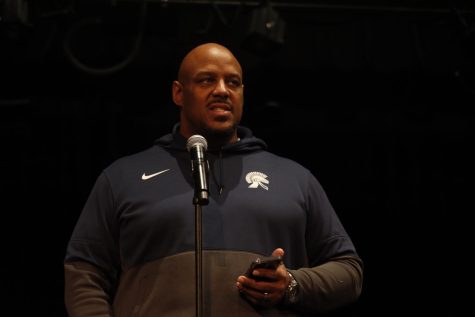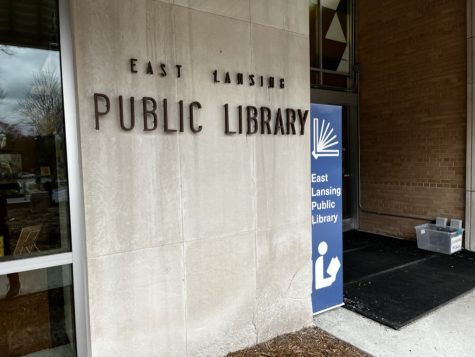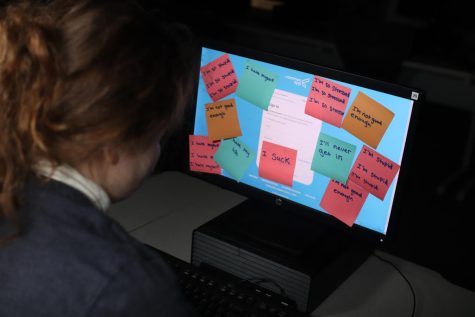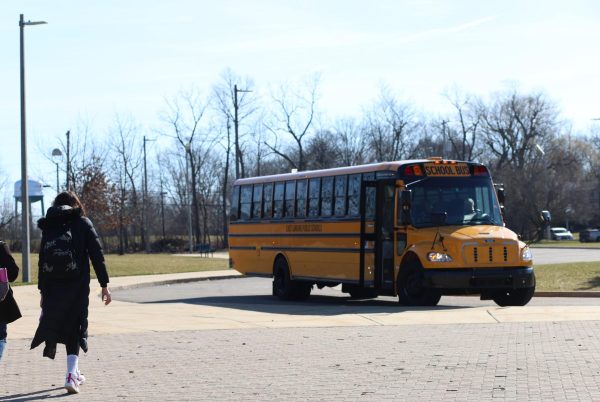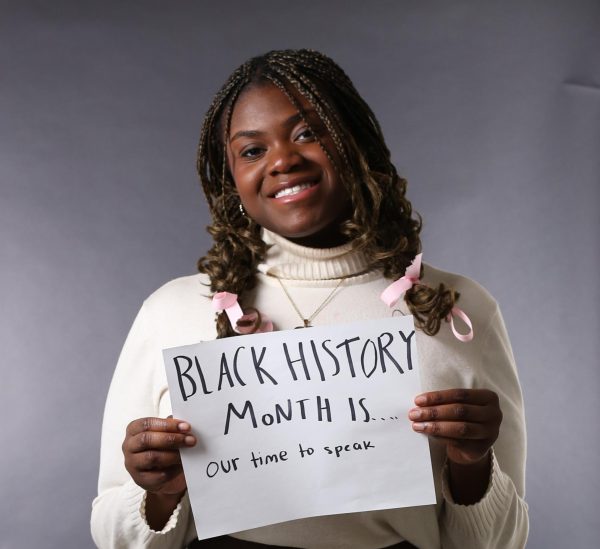Life of the Party
Portrait does not endorse underage drinking or partying, and this article is purely meant to be informational. Additionally, this article contains descriptions of drinking in excess and a vague discussion of eating disorders. If you are sensitive or triggered by any of this material, please be aware. Due to these individuals engaging in illegal activity for minors, Portrait granted anonymity to several students in the article, whose names are replaced with pseudonyms.
All Jane (12) wanted was to host a party that everyone felt welcome at. She wasn’t a party person, not really. After the worst of the pandemic, she thought East Lansing kids needed more time to bond, and that she could have the party to do just that.
She picked Halloween weekend. Earlier that day, East Lansing was in a state of chaos because MSU beat UM in their annual football game– which gave Jane even more of an excuse to host the event. She knew that the police would have too many other issues to worry about her gathering.
Until it wasn’t a small party.
There was alcohol at the party, but Jane wasn’t the supplier. She knew that she could be held liable if something went wrong and she was distributing it, despite not being old enough to drink herself. She didn’t want it to be too big, of course.
Initially, the party only included kids from ELHS, but the invitation was posted publicly on social media and it quickly spread to include kids from neighboring districts and even some MSU students.
“I got really overwhelmed because I didn’t recognize anyone so I wasn’t even sure how many people were there, but it was a lot,” Jane said. “My mom and a few of my close friends went through the party and essentially if we didn’t recognize you, you were out.”
That was the first and probably last party Jane will ever host at her house. But she knows that other students will continue to host and go to parties, whether in East Lansing or not. Even if they think they know the consequences.
According to the Michigan Department of Health and Human Services, 16 percent of youth in Michigan aged 12-17 admitted to drinking in the most recent survey which was conducted in 2010. According to this same survey, drinking is not only risky for direct side effects but also has a very strong correlation with other self-destructive behaviors like purging (throwing up intentionally) and fasting to lose weight.
In Ingham County however, according to the 2019 Michigan Profile for Healthy Youth survey, 43.6 percent of the class of 2020 had drunk alcohol, which is more than twice the Michigan average, and 28.7 percent of Ingham County class of 2020 had been drunk by their junior year.
And when students were asked why they party, most of them had the same answer:
They don’t really know.
“Last year, because of the pandemic there was a lack of socialization, so everyone’s overcompensating for that and doing a lot more socializing and partying than they would have been stretched out over their four years in East Lansing,” Jane said.
Sam (12), who has attended parties since his sophomore year, also brought up that parents were worried about their kids socializing during the height of the COVID-19 lockdown last year, so now they let kids get away with a lot more.
“Parents are more lenient with their allowances in terms of going out and hanging out with friends, [going to a party],” Sam said. “Going to parties doing stuff like that, that may not be as good for people of this age, and yet it’s allowed because of our climate right now.”
And while they may not always know why they party, they’ve started to learn where they can.
When police get involved
Of the 13,955 total calls recorded in the 2020 East Lansing Police Report, 44 were for ID checks and six for liquor violations– but out of all 87 categories the second-highest number of calls were made for 1,110 noise complaints, usually tied to parties in the area.
Due to the COVID-19 pandemic, police calls were down nearly 50 percent from previous years and parties were less prevalent, but the data still displays the extent to which police intervention is requested at these events.
Additionally, this is a combination of data from the area so it accounts for all parties, including those with MSU students and without.
Sgt. Kristine Khoury and Lt. Chad Pride are trainers for the department’s de-escalation training, and tend to be the ones called to intervene at a house party in the city. They stressed that in general when the police show up, they are usually just there to disperse the party and don’t go to these calls hoping to arrest people.
“We would send two officers usually on that call, to make contact with a resident,” Pride said. “We try to talk to a resident who lives there and or is on the lease and then it’s the officer’s discretion if they want to issue a citation.”
In their training for de-escalation, they focus on communicating with people and bringing them down from where they are if they’re upset.
“But you have to remember the de-escalation doesn’t always work,” Pride said.
According to the pair, parties rarely require any form of intervention past asking everyone to go home. Also pointing out that sometimes people feel pressured to continue the event or stay past the point of them being uncomfortable with it so asking to disperse the party also offers an out for these individuals.
Amber Tunis, who is a social worker with the East Lansing Police Department, stressed the importance of having a plan in place within families and suggested all families have a safe word they can use on the phone or via text that the caretaker will know always means they should come to pick up their child.
“If they already have that word kind of pre-made and it makes the conversation shorter and kind of initiates that plan,” Tunis said.
Another point Pride brought up was the importance of calling 911 if someone is unconscious or seems very sick and staying with them to explain the situation to officers at the scene.
“If you’re with a bunch of your friends, and you’ve been drinking and somebody has had too much to drink and you’re concerned because they don’t look good, or they’ve been throwing up or you know they don’t seem right, you can call 911,” Pride said. “And tell them that you need medical attention and you won’t get in trouble. It’s the Michigan Medical Amnesty program.”
Looking at the psychology
With the constant access to college parties, Jade Bennett, the psychology teacher at ELHS, expressed concerns for students’ safety with them growing up around this behavior.
“Growing up around [a college campus] might expose some people to these types of experiences earlier in their teen years, and also expose them to more intense/dangerous experiences had they attended these college parties.”
Bennett confirmed that this lined up with her experience, she wanted to do things almost for the sake of breaking the rules and she still isn’t sure why.
“I wanted to party and I wanted to drink until I turned 21, and then I didn’t anymore,” Bennett said.
Bennett raised the point of alcohol inhibiting judgment and inhibitions so students have a stronger sense of community with each other.
“Students party as a way to interact with peers and it gives some people a sense of belonging and something to look forward to because with alcohol comes loosening of inhibitions,” Bennett said.
And while she doesn’t condone their actions, she understands that students want to be part of something they’re not technically allowed to.
“This is prevalent in teen years because you are starting to grow up so some people can have a loosening of restrictions near the end of their junior and senior year and with that comes a taste of independence.”
School social worker Jessica Poke declined to comment for this story.
The benefit of staying safe
Bennett, as well as every student interviewed, mentioned how important harm minimization can be in ensuring safety of students. Especially since it’s unlikely that students will fully stop underage drinking, but they might be able to listen to advice on how to stay safe.
Ann, Jane, Sam, Bennett and the members of police interviewed recommended staying with friends, not sharing food or beverages with someone you don’t know well, and most of all never drive while under the influence.
“I think that the number one thing is just to not drink and drive. Like I cannot. I cannot preach that enough to anyone like,” Ann said. “Oh my gosh, if I ever hear people who would have had something to drink and they’re trying to drive I get so mad.”
Luckily, students care about each other’s safety and most of the time students seem to look after each other, making sure everyone has a sober ride home.
“That’s one thing that East Lansing students are actually pretty good at is establishing within their friend groups who is going to be the designated driver,” Jane said.
If you need mental health support or help with addiction, call a mental health hotline like (517) 346-8460, reach out to Jessica Poke at [email protected], or your school counselor. For more information on mental health go to https://elps.us/our-schools/east-lansing-high-school/student-services/mental-health-resources/ . If you or someone around you are in crisis call 911

Marie Adele Grosso is a member of the Class of 2022 and is the Managing Editor for Portrait. This is her second year on staff as a Junior. Marie Adele’s...




